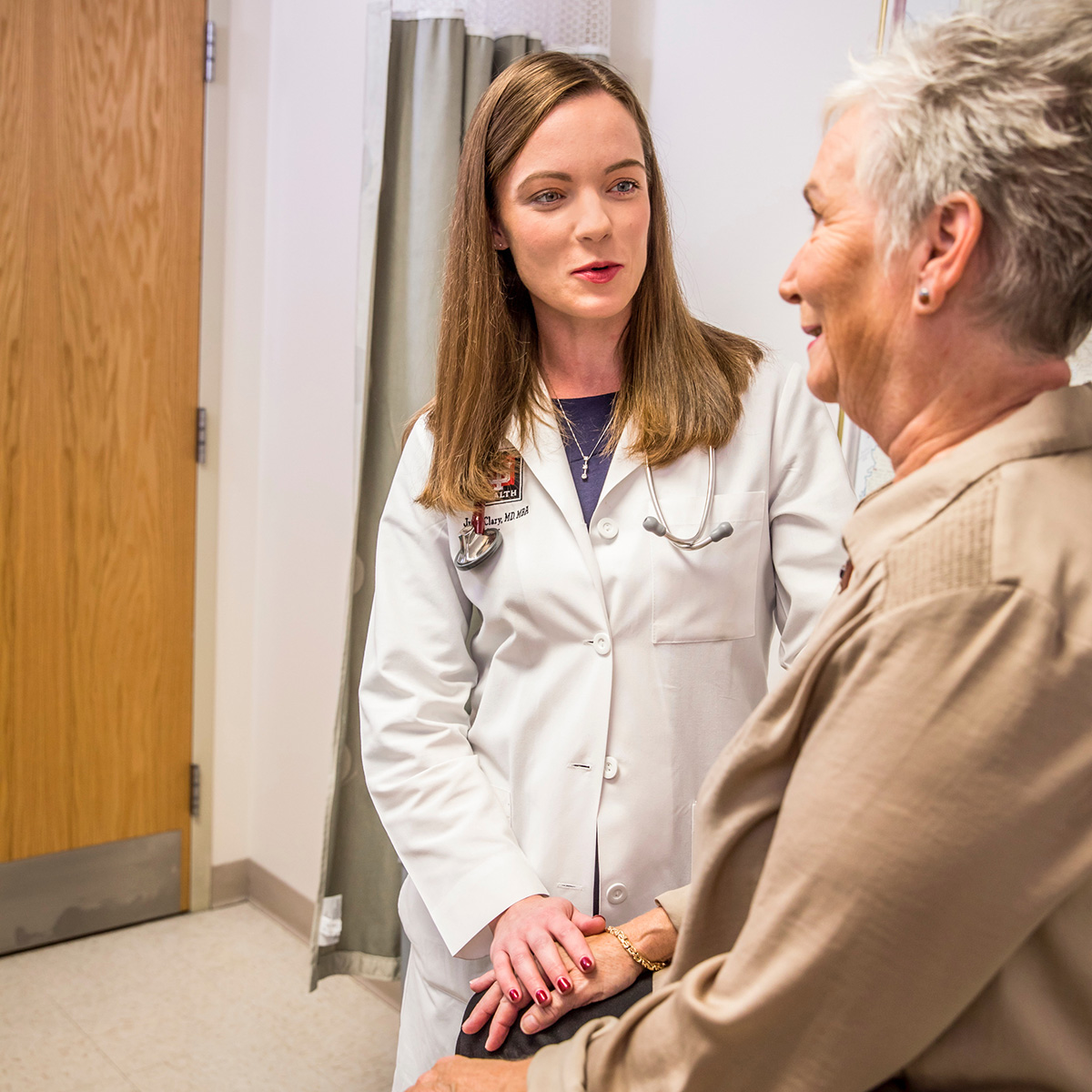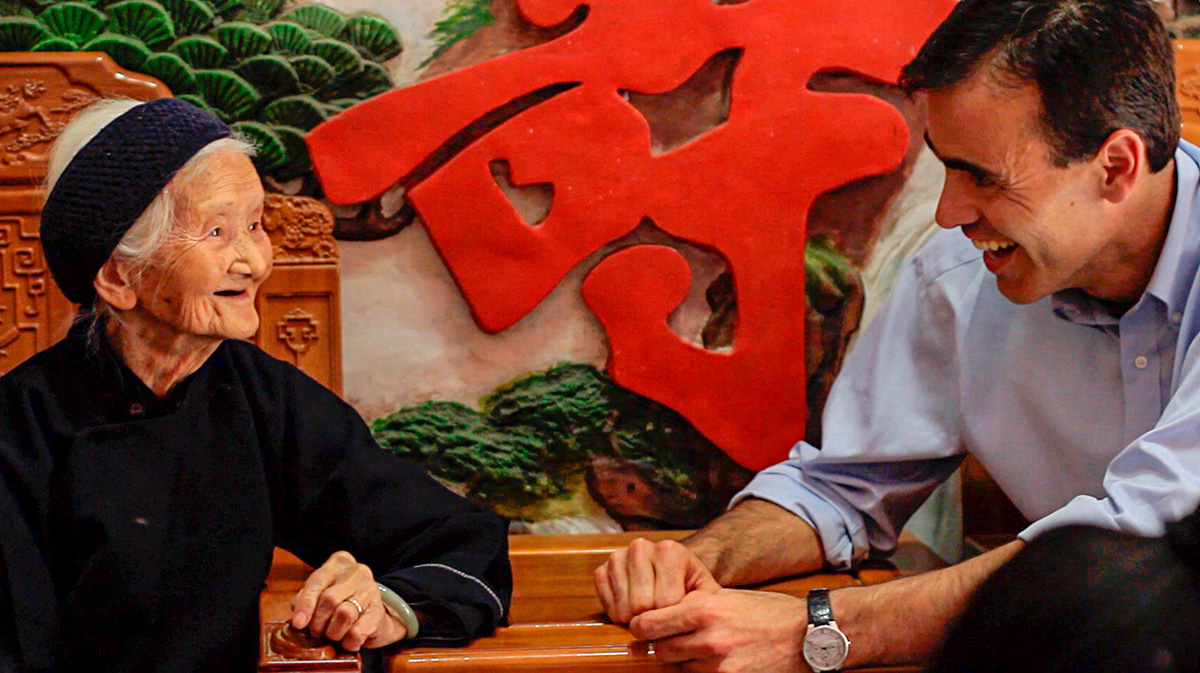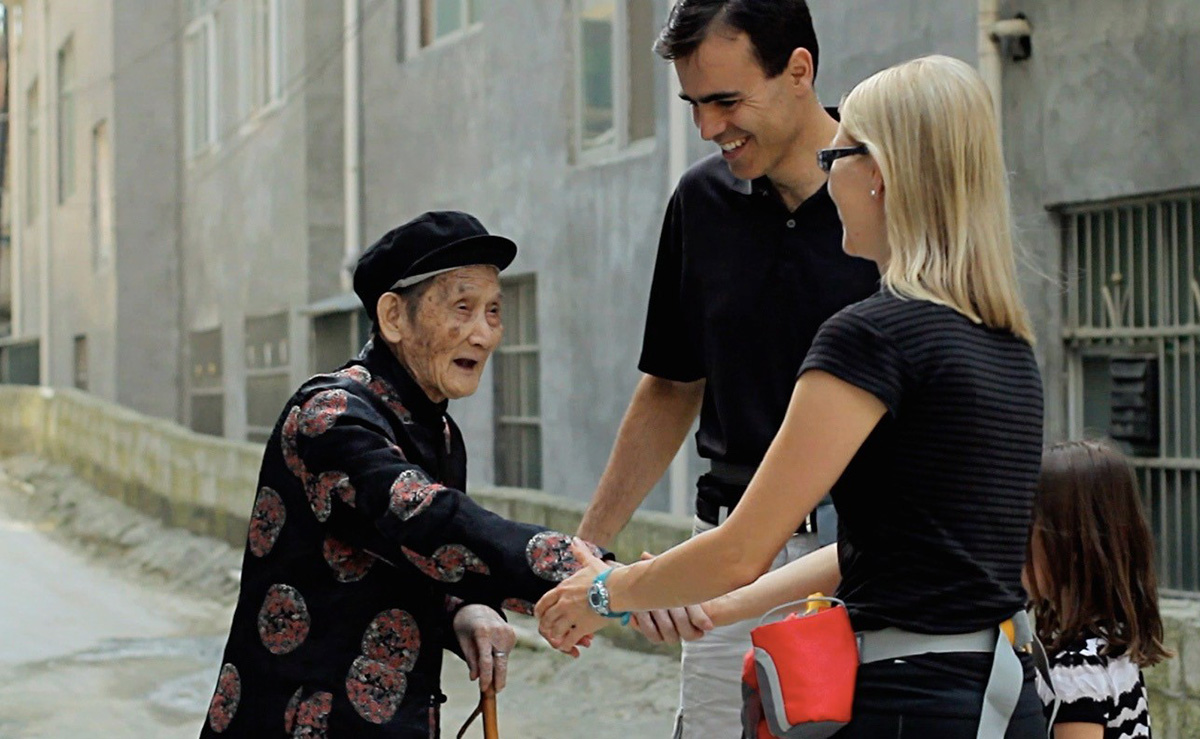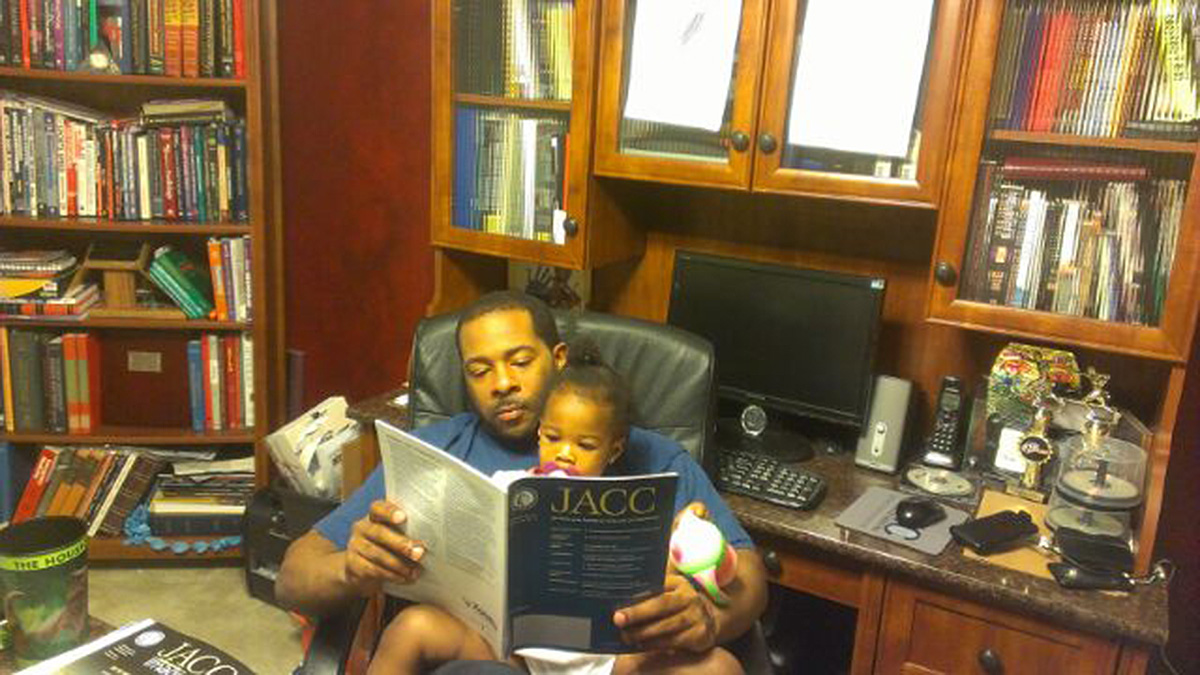Feature Story | ACC's Leadership Forum: Three Stories
A look inside the ACC Leadership Forum.
Reimagining ACC’s Leadership Forum: A Focus on Attendee Wellness

Julie M. Clary, MD, MBA, FACC, a member of ACC’s Leadership Academy’s Cohort II, has been hard at work on her capstone project to bring health and wellness to cardiovascular meetings – beginning with ACC’s 2018 Leadership Forum.
Leadership Forum, held Jan. 26 – 27, in Washington, DC, is designed to support and equip ACC leaders with practical tools to optimize leadership skills; understand leadership competencies to advance the College’s mission and strategic plan; identify individual vision, passions and goals; and build relationships. And now, Leadership Forum will allow everyone attending the forum to engage in health behaviors while learning.
“I have a reputation – I always take the stairs, even if it means climbing up 10 floors,” says Clary. “So when I attend ACC meetings and I’m forced to sit, I just don’t feel like myself.” Meetings start early and run late with networking receptions and dinner speakers, she notes. “Food selections are based more on pleasing the metaphorical heart than the physical heart,” she says. Read More >>>
The focus on attendee wellness at meetings for her capstone project is a bit of a call for ACC members to practice what they preach, adds Clary. “As cardiologists, we all know the importance of regular physical activity and healthy food choices. Let’s do a little leading by example, both for our patients and other members,” she says.
In working closely with College staff, Clary’s vision for a meeting where learning and wellness go hand in hand is about to become a reality – and is being dubbed the “Healthy Leadership Forum.” There will be complimentary exercise classes, guided meditation sessions, healthy food and beverage options, standing options in meeting rooms, and more. All activities will be available to the broad array of attendees, from ACC officers, governors, incoming trustees, council chairs, training directors, fellows in training, chapter executives, cardiovascular team members, and members of one of ACC’s newer leadership groups – Leadership Academy.
“I hope attendees will be able to piece together different aspects of the Healthy Leadership Forum that both fit their lifestyle and push them a little outside of their comfort zone,” notes Clary. “I hope the dedicated exercise classes can be a new networking opportunity for our members. The guided meditation can be a great way to be mindful after a day of intellectual stimulation.”
Clary’s capstone project is timely, because the focus on physician burnout and wellness is taking center stage. “The triple aim has been expanded recently to the quadruple aim to include clinician well-being,” Clary highlights. “Clinician well-being certainly is more than just diet and exercise, but these can be a good starting point to help clinicians lead healthy lives.”
Leadership Academy, now hosting its second cohort of leaders, was formed in 2014 to grow the College’s leaders of tomorrow by providing leadership development to early career leaders today. The program addresses critical leadership skills needed in today’s environment, enhances leadership experience within the ACC, and provides an opportunity to advance strategic priorities of the College in such a way that also grows leadership competency and development.
As part of the overall curriculum of the Leadership Academy experience, each future leader is paired with a current or former leader of the College who is their mentor. With the guidance of their mentor, each Leadership Academy member is charged with determining a capstone project that is meaningful to them, while also aligned with a strategic objective of the College. These projects are intended to help Leadership Academy members grow and stretch their skills – and tackle a real-life problem about which they are passionate. Clary’s mentor is ACC’s past president David R. Holmes Jr., MD, MACC.
“Working on this project has helped shape my skills in many ways. Specifically, fostering innovative thinking and inspiring change are important skills I’m developing,” says Clary. “I’ve had to deal with setbacks and denials and subsequently had to rethink my proposals and consider stakeholder alignment. Team building has been an important skill as well – being able to identify who I need on my team to help move this idea forward.”
Clary hopes her capstone project isn’t the end of embedding health and wellness within ACC meetings – and beyond. “With the success of a Healthy Leadership Forum 2018, this idea can be expanded to other ACC meetings, even the Scientific Session, in the coming years,” she adds. While hoping the healthy meeting format can continue to grow at a national ACC level, she highlights there are elements that can be implemented at the chapter and practice level too. “ACC members can use the ideas they experience at the Healthy Leadership Forum in many ways back home – install standing desks in common workspaces, offer treadmills in physician lounges, replace unhealthy lunches or dinners with plant-based meals and make the stairs the default instead of the elevator,” she suggests. “I think the takeaway is that small choices can add up throughout the days and weeks into meaningful changes in lifestyle.”
Sharing Longevity Secrets with ACC Leaders: Leadership Forum Interview with John Day, MD, FACC

Chapter President and Governor of ACC’s Utah Chapter, John D. Day, MD, FACC, will address ACC leaders at the College’s annual Leadership Forum as part of the meeting’s focus on health and wellness. Day is the co-author of The Longevity Plan: Seven Life-Transforming Lessons from Ancient China, which details his experience living in a remote mountainous region of China, known as the Longevity Village, where living past 100 years is not uncommon.
What will be some key points of your talk at ACC’s Leadership Forum?
The main message of my talk at the ACC Leadership Forum is that health, longevity and a life free of cardiovascular disease is quite simple. By just doing a few simple things consistently each day, most people will never have to suffer from cardiovascular disease. While the typical American now lives to age 79, sadly the last 10 years of their life will probably be spent taking handfuls of medications and going from one doctor’s appointment to the next, based on data from the World Health Organization. In contrast, studies show that most people can thrive to age 90 and beyond by just making a few simple health decisions each day. In other words, most Americans are leaving 21 years of excellent health on the table. As physicians, most of us don’t realize the power for good that each of us has with even just brief physician advice. Indeed, studies show that encouragement from a physician to live a healthier lifestyle may have more of a positive benefit on atrial fibrillation or coronary artery disease than a lifetime of prescriptions. Read More >>>
In your book, you discuss how at one point, even as a well-regarded cardiologist, you were not the picture of health. However, an experience in the mountains of China helped you transform your life into one focused more on wellness. Why is it important that physicians and members across the cardiovascular care team focus on the key element of the quadruple aim of wellness of the practitioner?
Even though I’ve been a life-long exerciser, eventually even my daily exercise habit couldn’t save me from the standard American diet, overworking and a life full of unhealthy stress. Usually, somewhere in our 40s, our bad habits seem to catch up with us. As physicians, we need to lead by example. While this may sound easy, on a day-to-day basis, it can be quite challenging. For example, when time is limited and most hospitals stock dining rooms with seemingly unlimited choices of free sugar and other processed foods, it can be hard to resist. Likewise, this perceived lack of time also makes it difficult to find opportunities to be physically active. In addition to eating right and moving more, there must be more to our lives than just work. Stress is real and burnout is common in our profession. We need to cultivate interests and relationships outside of the hospital to be our very best while we work inside the hospital.
Do you have specific “must share” examples from your time in the Longevity Village in China that ACC members can employ to focus more on their own wellness – or pass on to their patients?
For me, it took taking my family to live in an obscure mountain village deep in China to learn the secret to health and longevity. Indeed, the people of China’s Longevity Village, which claims the largest percentage of centenarians in the world, taught us that the real secret is simplicity. Even though we had put together a team of researchers to find some genetic or other exotic answers to this longevity mystery, it came down to seven simple principles.
Of these seven principles of health and longevity, probably the most surprising to my colleagues will be that of social connectivity. Indeed, studies show that real human interaction may be a more important predictor of longevity than either smoking or obesity. One of the centenarian’s whose story we share in the book attributes her longevity to her relationships with fellow villagers. In the case of Ma Songmou, thriving to age 108 only occurred because these fellow villagers saved her from certain starvation during Chairman Mao’s Cultural Revolution in the 1960s. As she was branded a “rich peasant,” local communist leaders tried to starve her to death. The Red Guards would have had their way had it not have been for the fellow villagers who risked their lives with smuggled food to return the kind favors she had previously shown them in their times of need.
Not only are you a leader in this wellness and life-transformation space, but you are also an ACC leader. What keeps you involved and drives you as a College leader?
My service within the ACC comes because of my need to both give back and help improve the lives of people living in Utah. I can’t imagine anything else I would rather do than be a cardiologist. It is such a privilege to be a cardiologist. Our profession has given us so much that each of us has the responsibility to give back in some way. This giving back could also come through teaching, mentoring or research. For me, there are too many people unnecessarily suffering from cardiovascular disease in my state. While my role as president of the Utah ACC Chapter doesn’t allow me to do everything, at least it offers me the chance to help guide political leaders, hospitals and my fellow cardiologists to work toward the goal of a life without heart disease.
Service Through Leadership: Helping Patients, Meeting ACC’s Mission
“We’re at a tipping point regarding health care and cardiovascular disease,” says Travis Batts, MD, FACC, a member of ACC’s Leadership Academy’s Cohort II. For Batts, who counts prevention, population health and nutrition among his primary areas of interest in cardiology, his leadership training is providing the skills and knowledge to positively impact health in regard to cardiovascular disease.
Leadership training is also an opportunity to pay it forward and serve the College that has provided him with a wealth of ongoing education, starting in his fellowship years. “Whether at your local hospital or on the international stage, there are many avenues to serve through the ACC. These avenues are meant to provide a framework by which the individual engages in population health, purposeful education, member engagement and transformation of care to attain our strategic goals,” says Batts. Read More >>>
“Education is the most powerful weapon which you can use to change the world,” said Nelson Mandela. Batts sees education as the primary tool against cardiovascular disease – but that it must start with cardiovascular professionals. Recognizing the common denominator of a long history of conditioned behaviors that promote sedentary lifestyle and poor diet that contribute to too many early deaths in his patients, Batts is motivated to drive this change.
The ACC selected the members of the leadership cohort to work toward specific strategic objectives of the College. “I feel honored that this great responsibility has been bestowed upon me by the ACC,” Batts says. He adds the Leadership Academy training has forced him to galvanize his approach to advocacy, solidify relationships with multidimensional collaboration and use failures as footstools for the future.
Batts quickly enumerates skills he’s learned that have already proven invaluable in the lives of his patients and his day-to-day practice. These skills include the capacity to appreciate the tenuous relationship that exists within attaining strategic goals, creating opportunities from crisis and compassionately curbing conflict. He describes ACC’s Leadership Academy as an intellectual boot camp, through which the prospective leaders are challenged to be intellectually sound and emotionally astute.
“My participation in ACC Leadership Cohort II has dramatically changed the course of my professional career,” he adds. He credits mentor Samuel O. Jones IV, MD, MPH, FACC, for motivating him to participate in Leadership Academy and with teaching him the role of networking, as well as the importance of work-life balance.
The ABC’s – accountability, be a blessing and creativity – are the guiding principles taught by his father, Jesse L. Batts Jr, that serve as the foundation for Batts’ leadership. Accountability means standing behind all decisions. His father noted this includes accepting all blame for a bad decision and passing all praise for a good decision to those you’re leading. Batts’ father appreciated the transitory role we have in the lives of others and taught his son there may be only one opportunity to have a life changing impact. By understanding this, he should seize the opportunity and be a blessing to those around him and serve them. Creativity can be summarized with this aphorism from Batts’ father: Do not let the fear of failure freeze your fortune. Obstacles are opportunities awaiting creative solutions. Leaders should embrace innovation and diligently develop pathways towards process improvement. These skills must be cultivated with daily practice, reinforcement and recognition.
Ultimately, his leadership training is all about being an active member of the College to serve its mission. “All cardiovascular health care providers should be serious about attaining lower cost, improved health and better outcomes,” says Batts. A copy of the ACC’s Strategic Plan is always at hand, so he can continually and critically evaluate whether his activities are contributing to achieving its goals. He encourages everyone to make these goals a priority and get to work with the College. Such buy-in has tremendous power, he notes, in medicine – and in other venues in life, which he illustrates with the success of football teams that he coaches. Despite the odds and lack of resources, through buy-in at all levels that prioritize the children, two teams qualified for the city championship. Working together and tackling leadership opportunities and challenges, ACC members can indeed transform care and improve global heart health.






Clinical Topics: Arrhythmias and Clinical EP, Cardiovascular Care Team, Congenital Heart Disease and Pediatric Cardiology, Diabetes and Cardiometabolic Disease, Prevention, Atherosclerotic Disease (CAD/PAD), Atrial Fibrillation/Supraventricular Arrhythmias, CHD and Pediatrics and Arrhythmias, CHD and Pediatrics and Prevention, CHD and Pediatrics and Quality Improvement, Diet, Exercise, Smoking, Stress
Keywords: ACC Publications, Cardiology Magazine, Atrial Fibrillation, Beverages, Burnout, Professional, Cardiovascular Diseases, Child, Climacteric, Cohort Studies, Coronary Artery Disease, Creativity, Curriculum, Diet, Exercise, Fellowships and Scholarships, Food Preferences, Health Behavior, Heart Diseases, Learning, Life Style, Longevity, Meals, Meditation, Mentors, Mindfulness, Motivation, Obesity, Prospective Studies, Research, Research Personnel, Sedentary Behavior, Smoking, Social Responsibility, Trustees, Work-Life Balance
< Back to Listings


